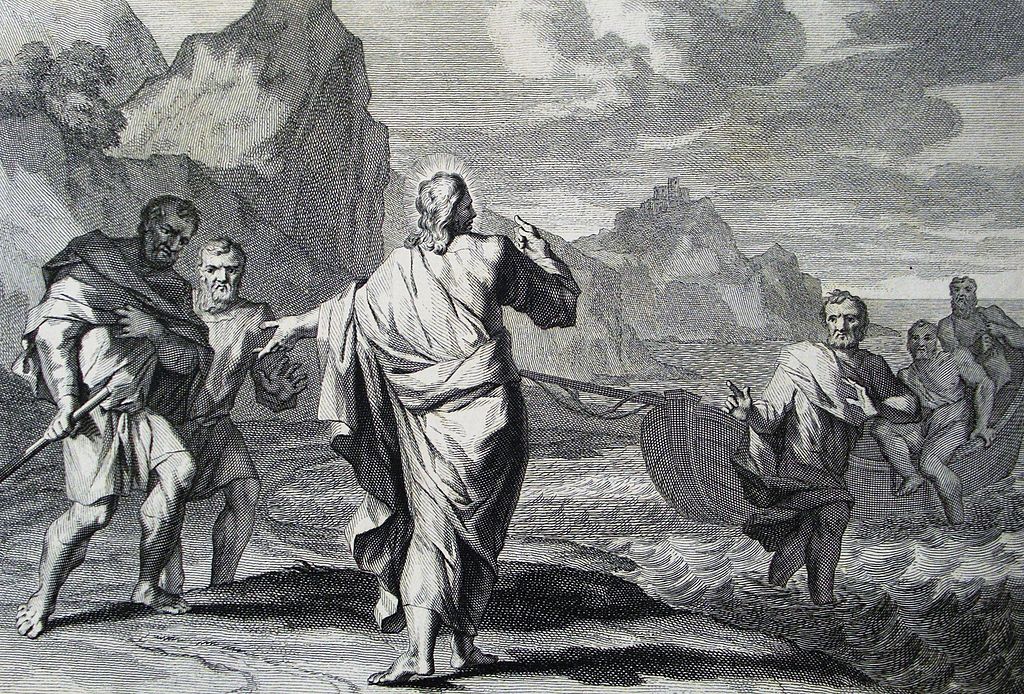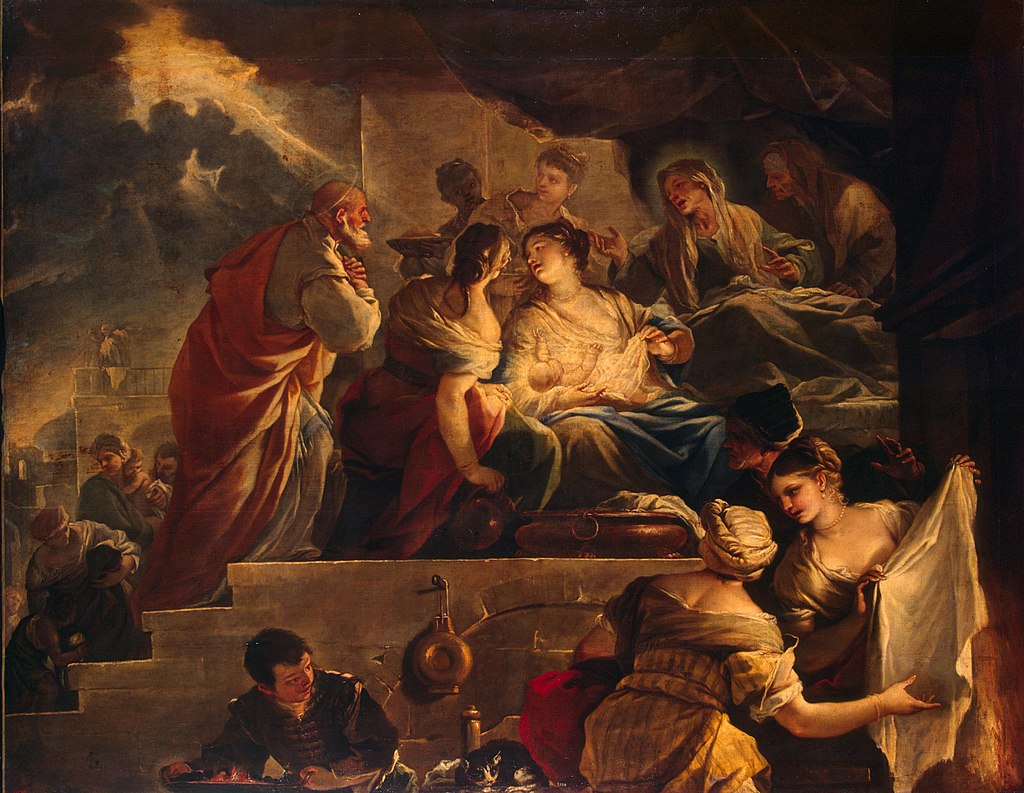
Synopsis: The choice between life in the Spirit and life in the flesh is not one to be taken lightly. It’s a choice between having a life of peace and joy and not having a life at all due to the suffering caused by self-indulgence and self-righteousness. Do we choose a life of peace and joy or one of suffering and misery?
Scripture Reading: Romans 8:1-17
Click here to listen to an audio of this sermon.
Our statement of faith begins, “We are not alone; we live with God in our hearts.” We say it, but we might also wonder, “What does it really mean, and how do we demonstrate this faith in our daily lives?”
Our scripture reading for today from Paul’s letter to the Romans is part of a chapter that is considered the most systematic treatment of the doctrine of the spiritual life in the entire New Testament. I believe it is here that we can find the answer. But first let’s back up a couple of chapters for some context.
In chapter six, Paul writes about libertine faith. This is the kind of faith Christians who don’t want to change have. They talk about grace, but they don’t strive for righteousness. Paul rejects this type of faith, explaining that if we are alive in Christ, then we are dead to sin. I believe that means the more we identify with the Spirit instead of the flesh, the more we will experience freedom from sin and the suffering it causes.
Both Jewish and gentile Christians suffered from this type of faith. They basically said, “Hot dog! I’m saved by grace, so I can do whatever I want!” Surprisingly, the Jewish Christians were in some ways worse than the gentile Christians. In his first letter to the Corinthians 5:1-8, Paul scolds the Jewish Christians for engaging in a form of sexual immorality that not even the pagans would tolerate.
There are many Christians today who suffer from this type of faith. They believe they are saved because they claim faith in Christ, but they are not experiencing their salvation. They are still enslaved by the Mind of Me. They are still suffering from their addictions to pleasures and treasures – still striving for these “status symbols” that they think make them worthy.
In chapter seven, Paul writes about legalist faith. This type of faith is the opposite of libertine faith. People with this type of faith want to bury themselves and others in rules. Many of the Pharisees of Jesus’ time had this kind of faith. Paul rejects this faith also, explaining that anyone who tries to follow the law without a change of heart is bound to fail. And the attempt itself is a sin because of the reliance on one’s own power instead of God’s.
There are many Christians today who suffer from this type of faith also. They belong to sects that are very strict, lots of rules and regulations. Devotees have no choice but to follow them if they don’t want to be expelled. But Jesus didn’t say, “Come to me, all you who are weak and heavy laden, and I will place even more burdens on you until your spirit is totally crushed because I am hard and arrogant in heart.”
No, he said in Matthew 11: 28-30, “Come to me, all you who are weary and are carrying heavy burdens, and I will give you rest. Take my yoke upon you, and learn from me, for I am gentle and humble in heart, and you will find rest for your souls. For my yoke is easy, and my burden is light.”
When we have true faith in Christ, we know that we are worthy by virtue of who we are, not what we do. We are God’s children. We can’t earn our inheritance any more than a child can earn his or her parents’ inheritance. It is ours simply by virtue of being a son or daughter. It is freely given in love. How insolent would it be for us to say, “No thanks dad. I don’t want your gift. I’d rather earn it myself.”
Yet that is exactly what those with a legalist faith are saying to God. Paul, a very devout Pharisee, suffered from a legalist faith. He writes about his struggle in verses 21-25: “So I find this law at work: Although I want to do good, evil is right there with me. For in my inner being I delight in God’s law; but I see another law at work in me, waging war against the law of my mind and making me a prisoner of the law of sin at work within me. What a wretched man I am!”
Both the libertine and legalist types of faith do not work. Both are self-deceptions that keep us slaves to sin. Many of the people in the Roman church might have felt the same frustration Paul expressed. But then Paul ends the chapter with the solution: “Who will rescue me from this body that is subject to death? Thanks be to God, who delivers me through Jesus Christ our Lord!”
Chapter 8, in which our scripture reading lies, begins with Paul explaining the nature of God’s provision for our deliverance. We can escape the suffering sin causes and live in a way that fulfills the law of God because we are not alone. God is with us. And more than being beside us, God is actually within us as the Christ – His Perfect Image. We are saved through his power alone. But how?
Paul explains in verses 2-4 that the law of the Spirit of Life in Christ Jesus has set us free from the law of sin and death by sending his son in the flesh to deal with and condemn sin so that God’s law could be fulfilled in us. What does that mean? Well, I don’t believe it means God sent His Son to pay for our sins. I do believe it means that God had to send His Son in the flesh because the problem existed in the flesh.
Here is an analogy to think about. In science, a complete circuit is an uninterrupted path for electrons to flow from an energy source, through a device, and back to its source. If that path is broken, then the flow of electrons stops, and the device can no longer receive power.
Often, the path is broken through a short circuit. What’s a short circuit? Well, energy likes to follow along a path of least resistance. When it finds a shorter path to follow, it will follow that one instead of the intended one, causing all connected devices to stop receiving power. To fix a short circuit, the damaged wire needs to be identified, cut out, and replaced with a new wire.
We are the Circuit of Life, and this body/mind is a device. The development of the Mind of Me caused a short circuit. Our energy began flowing in another direction – along the path of least resistance. God sent His Son, a master electrician, to deal with it. Taking on the flesh, he identified the Mind of Me as the faulty wire. Then he willingly and lovingly removed it with his crucifixion and replaced it with his resurrection. We now have the Power of God, the Holy Spirit, flowing through us once again.
It is only when we are connected to God’s power that we are able to function properly and fulfill God’s law. If we are short-circuited, we just can’t do it. We have free will, so God allowed the path of least resistance to remain so that we have a choice. So … do we choose to be a fully-powered, functioning part of the circuitry of Life – or to be defunct?
Imagine that you need to go on a long road trip, and you have a choice between two drivers. The first one is an expert driver. He knows exactly the path you need to follow to get you to your destination as painlessly and efficiently as possible. And all along the way, he’ll give you very wise advice, keep you on the right track, and comfort and reassure you that all will be well.
The second one has no idea how to drive; he only pretends to know. And he has no clue where you’re going; he only pretends to know. And all along the way, he’ll give you crappy advice, get distracted by all kinds of “shiny things,” leave you lost in some awful places, and fill you with fear and dread. But it won’t be his fault. He’ll consistently blame either you or others for the mess you’re in.
The choice between these two drivers is the choice between life in the Spirit and life in the flesh. So which driver would you choose for that long road trip? Seems like a no brainer, right? Yet most people pick the totally incompetent one.
All you have to do is look out into the world today to see evidence of that. In Luke 13: 23-24, we read, “Someone asked him, ‘Lord, will only a few be saved?’ He said to them, ‘Strive to enter through the narrow door, for many, I tell you, will try to enter and will not be able.’”
Those who try to enter but are not able are the people who think they are saved but can’t figure out why their life is still a mess. It’s a mess because their driver is not the Lord, and that’s why the Lord doesn’t know them.
Those who live according to the flesh suffer from an insatiable striving for pleasures and treasures. Do not envy people who go on exotic vacations or eat fancy meals or buy expensive things. They will never be satisfied no matter how many exotic vacations, fancy meals, or expensive things they buy.
That’s because how much they are “worth” by society’s definition doesn’t make them truly worthy. Deep in their souls, they know this, but they can’t stop listening to their incompetent driver, who says, “Check out this shiny thing. Buy this one, and I promise you’ll feel better.”
Those who live according to the flesh also suffer from an insatiable desire to be better than everyone else. Do not envy people who claim to be better than everyone else because they live according to “God’s Word.”
They inwardly place on themselves the same demands they place on others – heavy burdens that they themselves will never be able to live up to. Deep in their souls, they know it, but they can’t stop listening to their incompetent driver, who says, “Check out that sinner. Judge her, and I promise you’ll feel better.”
Do not envy these libertines and legalists because they are dying inside. They are experiencing painful alienation from God. Their souls are shackled and languishing in the Mind of Me’s prison, causing them to have a very twisted view God, themselves, the world, and life in general.
As Paul writes in verses 12-13, “So then, brothers and sisters, we are obligated, not to the flesh, to live according to the flesh – for if you live according to the flesh, you will die, but if by the Spirit you put to death the deeds of the body, you will live.”
I love that Paul uses the word “obligated.” So many people choose that incompetent driver because they feel obligated. They believe that incompetent driver is providing them with some kind of valuable service. Think of it this way: If you’ve ever traveled overseas, and your car is stopped at a stop light, someone may very well wash your windshield for you. And you will feel obligated to pay for that service.
But did you really need your windshield washed? Probably not, but opened your wallet or purse and paid for it anyway because you were tricked into feeling obligated. And that is the plain truth when it comes to any feelings of obligation we might have for the “service” the incompetent driver provides – service that is not only unnecessary but also truly stinks.
If we should feel obligated to anyone, we should feel obligated to the Lord who truly and lovingly served us. Yet, the Lord doesn’t trick us into feeling obligated (some churches do that), but the Lord gives us a choice. We can choose not to live by the Spirit, but if we make that choice, we won’t have a life. The Lord loves us so much that he did all he did so that we could have not just a life, but an abundant life.
As the Lord told his disciples in Matthew 16:24-26, “If any wish to come after me, let them deny themselves and take up their cross and follow me. For those who want to save their life will lose it, and those who lose their life for my sake will find it. For what will it profit them if they gain the whole world but forfeit their life? Or what will they give in return for their life?”
Thanks be to God that we have made a different choice. We have true faith in Christ, which is our only hope of release from slavery to sin. We know that we are worthy by virtue of who we are, not what we have or what we do. Once we know that we can’t un-know it, so we can’t go back self-indulgence or self-righteousness. That is why there is no condemnation.
We can consider ourselves Sons of God because by our choice to be led by the Spirit, we join with the Christ. We cry “Abba, Father!” because we acknowledge who we are. We gratefully receive the gift of the Holy Spirit, knowing that it is only though this gift, our Father’s gracious gift, that we can escape the slavery and death of the Mind of Me and truly live.
So, what does it mean to truly believe that we live with God in our hearts? Well, it doesn’t mean we’ll be perfect; it simply means that we are truly striving for righteousness. We are extremely wary of self-indulgence and self-righteousness because we know it’s a trap. We may briefly follow the path of least resistance – it’s only natural – but the suffering on that path returns us to our senses rather quickly.
We may engage in a little self-indulgence from time-to-time, but we don’t use pleasures and treasures as a yardstick of our worth. We use God’s judgment of our worth, and He said, “This is my Son, whom I love, with him I am well pleased.” We have nothing to prove.
And because we know we have nothing to prove, self-righteousness is almost non-existent in us Sons of God. Only people who believe they have something to prove are self-righteous, and if we ever think we have something to prove, then it’s a sure sign that we have forgotten who we are.
Many self-righteous people will judge us, and the Mind of Me will tempt you to judge them in return. But doing that only makes the Mind of Me feel better. Trust me, very soon after it persuades you to judge someone, it will turn around and judge you for being so judgmental. Yes. it gets a double-high at your expense. It’s not worth it!
We must be willing to let the Mind of Me suffer from our refusal to do its bidding because the more we let it suffer, the more it loses its power over us. It’s like letting a toddler throw a tantrum without giving into his or her demands. Eventually, the tantrums stop because he or she finally learns who is in charge.
That is what it means to suffer with him so that we may also be glorified with him. Imagine how much the Lord caused suffering for the Mind of Me! We know from the story of his temptations in the wilderness that he refused to do its bidding. He made the Mind of Me suffer so terribly that he became its master. That allowed his true Christ identity to take the driver’s seat in his life and save the world! That is the power of God within one glorified human being – one human being joined with Christ.
When we’re tempted to give up hope for humanity, let us just imagine the power of many human beings joined with Christ. Jesus was the first fruit in a multitude to come, and everyone in this room is part of that multitude.
So, let us make the choice live by the Spirit, to suffer with him, so that we may be glorified with him and joined with Christ as he comes now to establish the Kingdom of God – a world filled with love, peace, and joy.
Let’s pray together: Lord, we choose to live by the Spirit, to suffer with you so that we may be glorified with you. Give us the strength to resist the temptation to follow the path of least resistance so that we may be part of the abundant harvest to come that will transform this world into God’s Kingdom. AMEN.
Resources
Deffinbaugh, Bob. 32. “The Eleventh Commandment (John 13:31-38).” Bible.org 20 Aug. 2014 bible.org/seriespage/32-eleventh-commandment-john-1331-38








